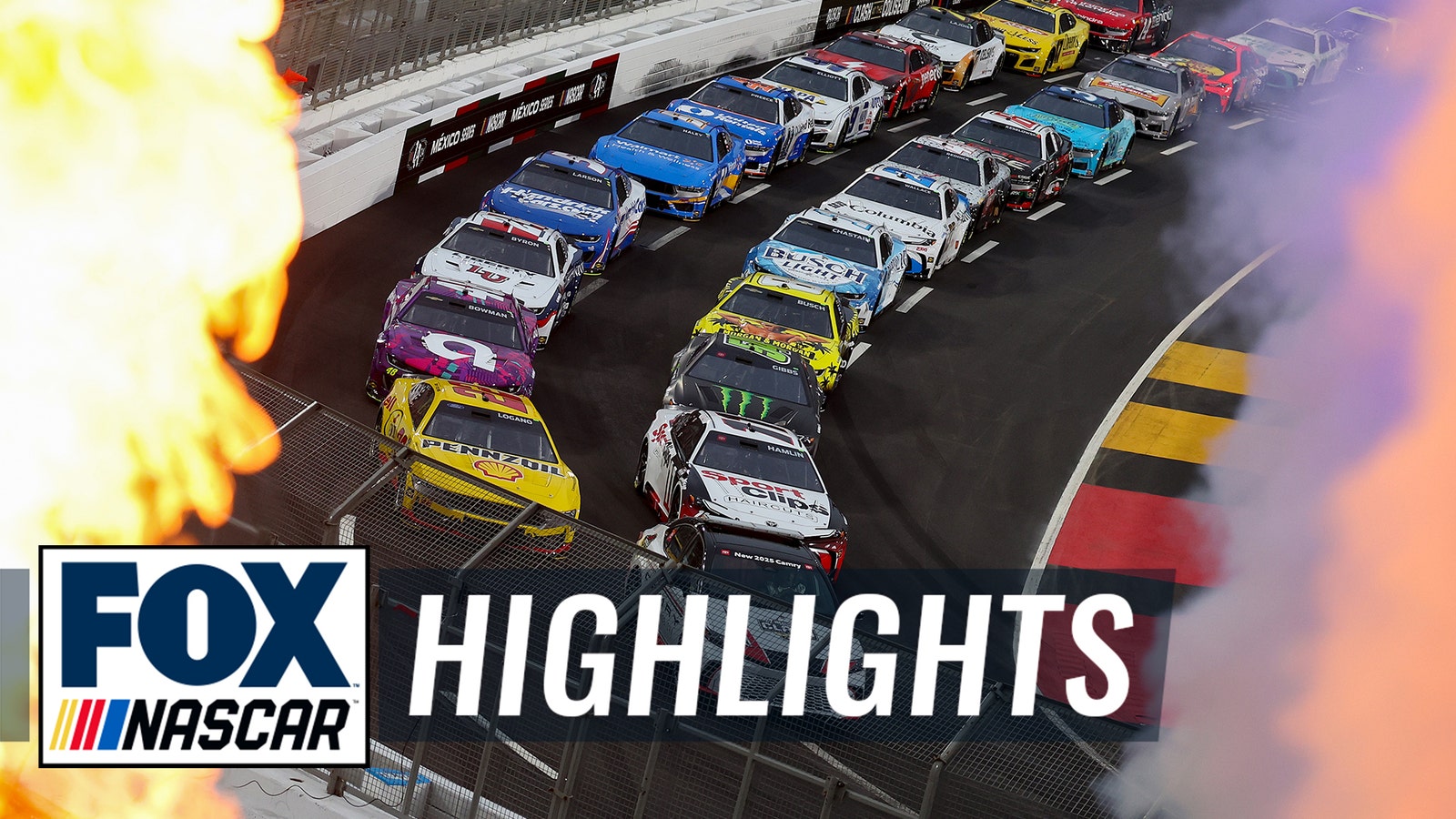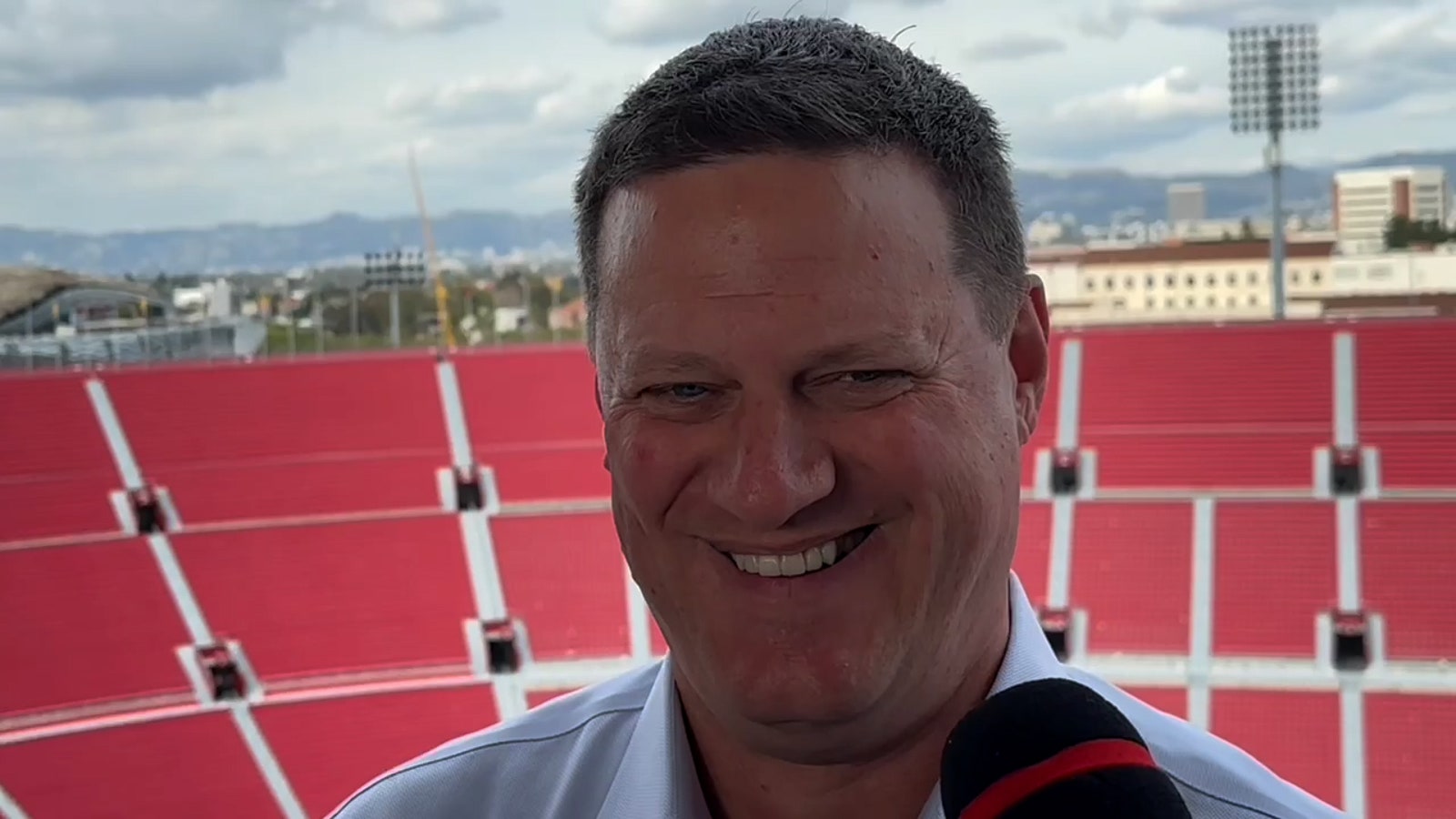Bob Pockrass
FOX NASCAR Insider
LOS ANGELES — NASCAR has a policy that it won’t move a Cup race more than an hour earlier than scheduled on the ticket and it must give 24 hours notice to do so.
NASCAR threw that policy out the window Saturday when it announced it would move its exhibition Clash from Sunday to late Saturday afternoon. The announcement gave less than six hours notice of the green flag.
NASCAR made the decision as a dangerous storm system was predicted to hit the Los Angeles area Sunday and last until Tuesday or Wednesday.
On a normal race weekend, NASCAR likely would have waited until Wednesday and raced. It has done that previously.
[Read more: NASCAR takeaways: Late miscue by Ty Gibbs opens door for Denny Hamlin at the Clash]
But there was nothing normal about the Clash, which is conducted on a temporary asphalt surface laid atop the football field at the iconic Los Angeles Memorial Coliseum.
Staying a few extra days would have meant NASCAR would have had to lease the Coliseum for extra days, plus spend significant dollars on extra security as well as the tear-down workers for additional time, not to mention keeping its officials and other workers there.
The Clash is NASCAR’s worst-paying event with a total purse of just $2.21 million to the 36 teams competing. That’s an average of $61,388 per team. Some likely were losing money on the event and adding travel costs would have been another punch.
NASCAR, its production arm and television partners likely would have had trouble staying for the event and getting all the equipment across the country for Daytona, where qualifying is set for Dec. 14 for the Daytona 500.
That might seem like a lot of time to move, but the footprint to televise the Daytona 500 is massive and not something they would want to rush in order to get in an exhibition event.
2024 Busch Light Clash at The Coliseum highlights

If the race didn’t occur, NASCAR likely wouldn’t have gotten the television money and more than likely the teams wouldn’t have gotten paid, adding insult to injury.
So when facing potentially losing several million in revenues if the race never happened versus losing several million in ticket refunds (or credits to future events) for all those who had tickets (as well as merchandise sales), NASCAR opted to at least get in the event.
NASCAR faced a no-win situation as the race is designed to generate interest going into the season. Doing it on a weekday trying to dodge lingering rain probably wouldn’t have accomplished that feat.
Doing it at least on a Saturday night — even on short notice — turned into the right decision as the rains started a couple of hours after the conclusion on Saturday.
So would NASCAR do it again?
“I’m not going to speculate on it,” NASCAR Chief Operations Officer Steve O’Donnell said. “What we’re doing right now is unprecedented in the best interest for the fans. It’s going to be an inconvenience, certainly, for those who had tickets and were really looking forward to this,
“We’re going to be reaching out to every single fan to see what we can do to make it good on their end. But this was our best option for us to at least see some racing, get people tuning in … and those who were already coming out.”
O’Donnell said they didn’t start considering the move to Saturday until late Friday night. They had to coordinate with broadcast partner FOX, public safety officials, and Coliseum operations. They had already designated Saturday, which was supposed to be a practice and qualifying day, as a free event for fans and they opened an extra gate. A crowd of several thousand arrived for the free event.
“It certainly hurts — financially, it’s not going to be great, right?” O’Donnell said. “Nor will it be from a rating standpoint in terms of what could have been [Sunday night], but at the end of the day, it’s what’s the right thing to do? What’s the right thing to do is keep everyone safe. And this is the right decision.”
NASCAR COO Steve O’Donnell discusses the decision to move the Clash from Sunday to Saturday

The decision was applauded by the industry as they were able to get back to North Carolina. With several teams getting some body panels, parts and pieces just recently for Daytona, they had work to finish up before leaving next week.
Drivers were surprised that NASCAR went off their policy, where contingency plans primarily focus on the days after the event, not before.
“It’s one of the most logical decisions we’ve made as an industry, potentially ever, so I appreciate it,” said Hendrick Motorsports driver Chase Elliott. “I know all the rest of the industry personnel appreciates just the willingness to be able to make a change like that and to be honest with you, I’m thinking doing an event like this on Saturday night is a better fit for it anyway.”
The winner, Denny Hamlin, obviously left happy.
“We should consider tonight a success, only because if it didn’t happen tonight, I just didn’t think it was going to happen at all,” Hamlin said.
“While there would be some people that were upset about not being able to use their ticket for [Sunday], they weren’t going to use it Monday, either, and Tuesday I’m not sure was an option. This thing was just going to snowball. … Tonight was the only option to get this thing in, and I’m happy that NASCAR made unprecedented changes to make sure that the fans at least saw a race.”
Bob Pockrass covers NASCAR for FOX Sports. He has spent decades covering motorsports, including over 30 Daytona 500s, with stints at ESPN, Sporting News, NASCAR Scene magazine and The (Daytona Beach) News-Journal. Follow him on Twitter @bobpockrass.

Get more from NASCAR Cup Series Follow your favorites to get information about games, news and more